Cambodia
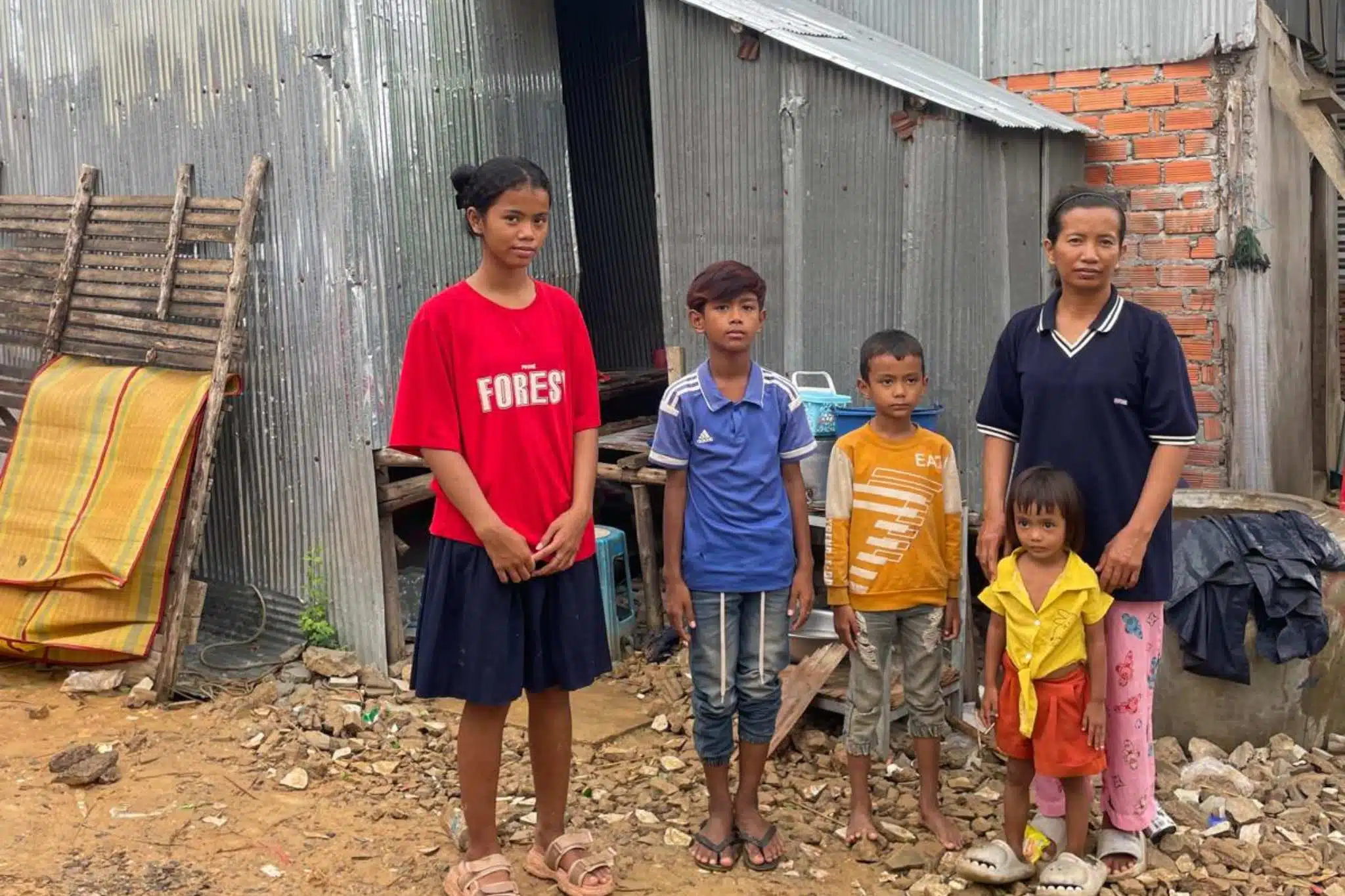
Share this project:
Protection against child trafficking and exploitation in Cambodia
Support us:
The context
By 2023, 1 in 2 Cambodians will be living on less than 4.5$ per day. Household overindebtedness is widespread in the country and the pandemic has encouraged negative coping strategies such as child labor, sexual exploitation and early marriage, as well as the slave trade.
Faced with inadequate social protection programs, a lack of economic opportunities, being squeezed by creditors, land grabbing, and increasing climatic hazards reducing the profitability of harvests, many Cambodians decide to migrate to areas that appear more prosperousparticularly on the Thai border.
On arrival, these families and their children find themselves and are all the more vulnerable to traffickers..
Even before the pandemic, in 2018, there were already an estimated 261,000 people in modern slavery in Cambodia (according to the Global Slavery Index).
How is your donation used?
Our projects are evaluated by independent firms. And our accounts are audited and certified each year by KPMG.
people were counted in modern slavery situations in 2018 in Cambodia
C'is the maximum daily amount on which 1 in 2 Cambodians live in the country
million people pushed into extreme poverty by Covid-19 in Southeast Asia
The project
Called PEGASE, the program is designed to prevent violence and the risk of exploitation by supporting highly vulnerable families to a more decent life and it supports existing structures to care for children who are often isolated.
He intends to build the capacity of local players and enrich their methodologies by running workshops and training courses, and promoting inter-country exchanges of practice.
Finally, it aims to inform, train and mobilize surrounding communities, protection networks, authorities and the general public to identify and report cases of child victims or children at risk, and create an ecosystem more favorable to child protection.
Implemented with 5 local civil society partners and a dozen public agencies, the program aims to support 5,160 child victims or children at risk, 940 very vulnerable families and 6,800 community members in Southeast Asia.
In Cambodia, activities take place in the town of Poipet. As thousands of children continue to cross the border, Thailand has stepped up its policy of deporting illegal workers. Children, unaccompanied minors, find themselves stranded in Poipeta key crossing point between the two countries and a border checkpoint, in extremely precarious conditions.
The activities are aimed in particular at support the operation of a reception office for unaccompanied children at the border (CMO) and a long-term care center for children who cannot return to their families.
In practical terms, the social workers at the reception office track down the families of isolated children, help them to return to their villages, and direct them to health centers and a reception center if necessary. In the long-term accommodation center, social workers provide comprehensive care for the children (nutrition, health, education, leisure, etc.).
Our partners in the field
Damnok Toek (DT): a Cambodian NGO which, since 2004, has been working to prevent and protect vulnerable children and young people from all forms of violence and abuse.
Child Migrant Office (CMO) in the Poipet Transit Centre: reception office for separated children at the border (Poipet)
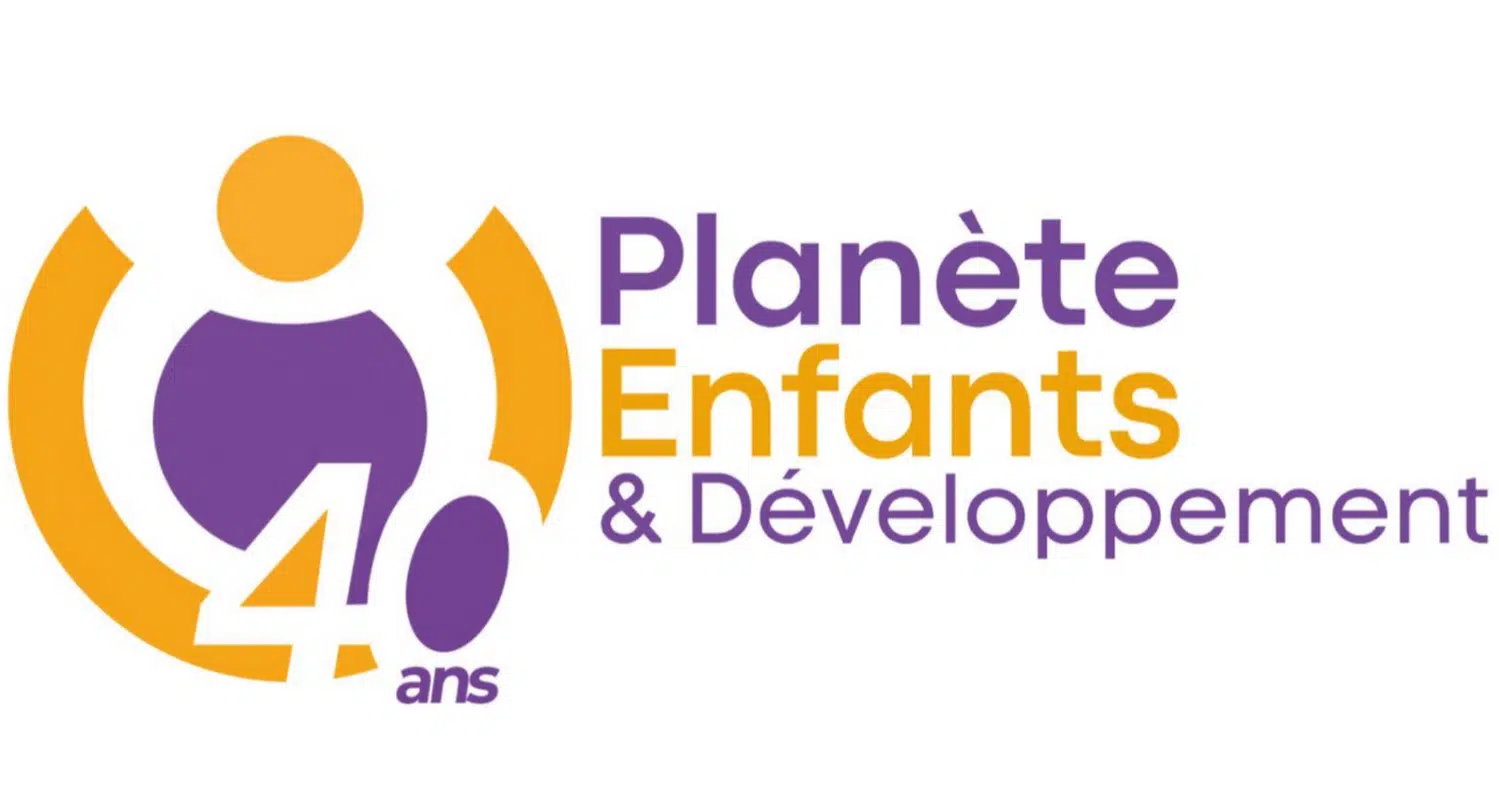
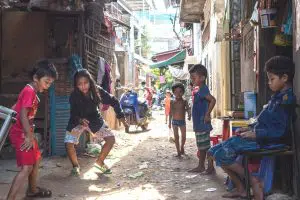 Cambodia: Supporting families in the slums of Phnom Penh
Cambodia: Supporting families in the slums of Phnom Penh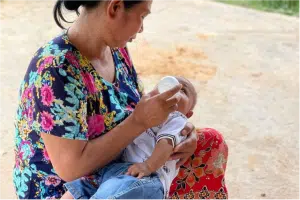 Cambodia: daycare centers in the villages of workers
Cambodia: daycare centers in the villages of workers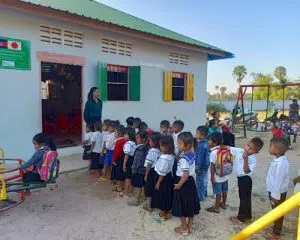 Cambodia: 100 community preschools standardized
Cambodia: 100 community preschools standardized